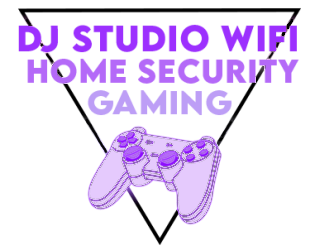Embarking on the path of becoming a DJ can be a thrilling adventure, brimming with creative possibilities. For beginners, setting up your first music studio is a crucial step in this journey. While the world of DJ equipment can seem overwhelming at first, understanding the basic essentials can help you build a functional and effective setup. This guide aims to demystify the process, outlining the key pieces of equipment you’ll need to start mixing and creating music as a beginner DJ.
Turntables or DJ Controllers
The heart of a DJ’s setup is the turntable or DJ controller. For traditionalists, turntables offer the tactile experience of mixing vinyl records, requiring a mixer to combine sounds. On the other hand, DJ controllers are an all-in-one solution, emulating the turntable setup with jog wheels for scratching and mixing. They are connected to a computer and work with DJ software, offering beginners a more accessible entry point with digital music files. Controllers range from basic to advanced, allowing you to grow as your skills develop.
Mixer
A mixer is essential for blending multiple audio tracks into a seamless flow of music, which is crucial for turntable setups. It allows you to control the volume, EQ, and transition between songs, offering effects like fading and cutting. Even if you choose a DJ controller, understanding the basics of a standalone mixer is beneficial, as it forms the core skill of DJing. Mixers come in various sizes, from two-channel versions for beginners to more complex models with multiple channels.
Headphones
Quality headphones are indispensable in a DJ’s toolkit. They allow you to cue up and listen to tracks before introducing them to the audience. Look for closed-back headphones for better sound isolation, ensuring you can hear your mix clearly in loud environments. Comfort is also crucial, as DJs often wear headphones for extended periods.
Speakers
Speakers are necessary for sharing your music with an audience. When starting out, a pair of reliable powered speakers can be a practical choice, eliminating the need for an external amplifier. Consider the size of the venues you plan to play in; for home practice, smaller speakers may suffice, while larger, more powerful speakers are needed for bigger spaces.
DJ Software
DJ software is the backbone of digital DJing, especially when using controllers. Software like Serato, Traktor, or Rekordbox allows you to manipulate digital music files, offering a range of features like looping, effects, and sample triggering. Many controllers come bundled with DJ software, making it easier to start mixing right away.
Audio Interface
If you’re using turntables, an audio interface is necessary to convert the analog signal into a digital format for recording or amplification. For those using a DJ controller, an interface is often built-in. However, if you’re looking to record your sets or produce music, a separate, high-quality audio interface can be a valuable addition to your studio.
Conclusion
Building your first DJ studio is an exciting step in your music journey. By starting with these essential pieces of equipment, you can create a versatile setup that grows with your skills. Remember, the key to success in DJing lies not just in the gear you use but in the practice and creativity you bring to it. As you become more comfortable and skilled, you can expand your studio with additional equipment like effects processors, samplers, and synthesizers.

